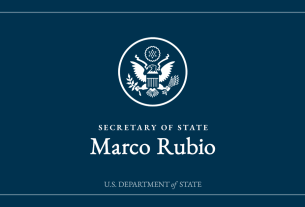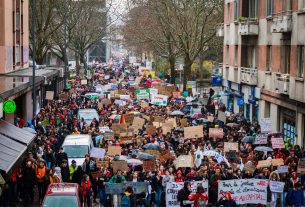Sudan’s ongoing civil war has escalated, with the Sudanese army battling drone attacks from the paramilitary Rapid Support Forces (RSF) on Port Sudan. For six consecutive days, military units have repelled drone assaults targeting vital infrastructure, including the Flamingo naval base and oil depots. The RSF’s drones first struck between Sunday and Wednesday, damaging the Osman Digna airbase, oil storage facilities, and other assets near the southern port. On Thursday and Friday, however, the Sudanese army successfully countered multiple “suicide” drones aimed at military positions (Sudan Tribune).
Foreign Weapons: UAE’s Role in Sudan Conflict
Amnesty International’s recent report has revealed the use of advanced Chinese-made weapons in Sudan, likely supplied by the UAE, in violation of the UN arms embargo. RSF forces are now using GB50A guided bombs and 155mm AH-4 howitzers, highlighting the UAE’s critical role in arming the group. The discovery of bomb fragments traced back to China’s Norinco Group further corroborates this, pointing to an ongoing breach of international laws. Amnesty’s report emphasizes that the UAE remains a key supplier of weaponry to the RSF, underscoring the complex web of international involvement in Sudan’s violence (Sudan Tribune).
Regional Security and Humanitarian Crisis
As Sudan grapples with mounting violence, regional instability continues to challenge international peacekeeping efforts. In South Sudan, the UN Security Council extended its mission, UNMISS, through April 2026, to support peacekeeping operations and protect civilians amidst escalating political tensions. Despite this, South Sudan faces renewed fears of conflict between President Salva Kiir and Vice President Riek Machar, further complicating peace efforts in the region (Radio Tamazuj).
Meanwhile, in the Democratic Republic of the Congo (DRC), the UN World Food Programme (WFP) delivered vital supplies to Beni in North Kivu, where violence from the M23 rebel group has displaced tens of thousands. Despite logistical challenges, the WFP aims to support around 140,000 people in the region, addressing the severe humanitarian needs (UN News).
Africa’s Political Landscape: Mali, Angola, and Mauritania
Political unrest also looms large in Mali, where the military government faces mounting protests despite efforts to curb political activity. The government’s recent ban on political parties and groups aims to suppress dissent ahead of planned protests in Bamako. Critics argue that Mali’s military leaders, who initially promised to secure the country from jihadist threats, have instead seen security conditions worsen (Reuters).
In Angola, the Bar Association condemned a court order halting a national debate on electoral reforms, calling it a direct assault on democracy. With proposed changes to electoral laws including the use of national ID cards as the sole voting document, critics worry about potential manipulation in upcoming elections (AFP).
Mauritania, in contrast, has found success in combating jihadism through its historic camel cavalry. The Meharists, once a dwindling force, have been revitalized, with European Union funding supporting their resurgence. These camel-mounted troops patrol remote desert areas, providing a vital presence in regions otherwise inaccessible to motorized vehicles. Remarkably, Mauritania has not experienced a jihadist attack since 2011 (AFP).
Nigerian Economic Growth and Innovation
Nigeria’s government has secured a $652 million loan from the China Exim Bank for critical infrastructure projects, including a major road connecting Lagos’ Lekki Deep Sea Port to Nigeria’s southern states. The project aims to boost the nation’s transport capacity for goods, particularly oil and petroleum products, amid mounting concerns over Nigeria’s growing debt to China (Reuters).
On the public health front, the African Union has announced ambitious plans to produce 60% of Africa’s vaccines locally by 2040, a key initiative to enhance the continent’s health security. This marks a major step forward, as currently, Africa produces only 1% of its vaccine needs. With production set to begin in South Africa and Senegal, the initiative could reshape Africa’s response to disease outbreaks in the coming decades (The Citizen).
Unusual Smuggling and Wildlife Protection
In Kenya, four men were sentenced for attempting to smuggle thousands of live queen ants, which are highly prized in Europe and Asia. The court’s ruling emphasized Kenya’s zero-tolerance stance on wildlife trafficking, reinforcing the importance of protecting ecological balance. The incident highlights the ongoing threats posed by illegal wildlife trade, with potential long-term impacts on biodiversity (BBC).
Conclusion
From escalating drone warfare in Sudan to growing political unrest in Mali, Africa’s landscape remains fraught with challenges. At the same time, the continent shows resilience, with increasing efforts to combat jihadism, improve healthcare and other important infrastructure, and strengthen democratic processes. As international actors continue to play a significant role, Africa’s path forward will be shaped by both internal reforms and external influences.



